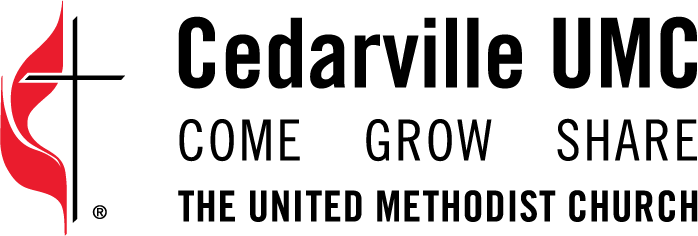| Hi, folks – It was wonderful to feel connected with you this morning as we worshipped together online! A huge SHOUT OUT to our amazing Cedarville musicians and KUDOS to Chris and Brad who used their gifts and knowledge of technology, and their servant hearts, to put all of the pieces together in a smooth order of worship and to guide its process during the streaming of the service! (If you were not able to be with us this morning, you can go to our website (www.cedarvilleumc.org) and click on the link for the worship service and watch. If the time indicator shows 1:35:34, simply slide the bar across the bottom of the screen until you get to 35:34 and the countdown will begin. If the time indicator shows 35:34, you are at the beginning of the worship service.) In my message this morning, I shared two quotes, one from C. S. Lewis and one from Martin Luther. I am sending them this afternoon for those who would like to have these words from these two great thinkers and theologians from past years/centuries: Atheist-turned-Christian-author, C. S. Lewis wrote these words 72 years ago— and they ring with some relevance for us today. Just replace “atomic bomb” with “coronavirus.” C. S. Lewis said, In one way we think a great deal too much of the atomic bomb. “How are we to live in an atomic age?” I am tempted to reply: “Why, as you would have lived in the sixteenth century when the plague visited London almost every year, or as you would have lived in a Viking age when raiders from Scandinavia might land In other words, do not let us begin by exaggerating the novelty of our situation. Believe me, dear sir or madam, you and all whom you love were already sentenced to death before the atomic bomb was invented: and quite a high percentage of us were going to die in unpleasant ways. We had, indeed, one very great advantage over our ancestors—anesthetics; but we have that still. It is perfectly ridiculous to go about whimpering and drawing long faces because the scientists have added one more chance of painful and premature death to a world which already bristled with such chances and in which death itself was not a chance at all, but a certainty. This is the first point to be made: and the first action to be taken is to pull ourselves together. If we are all going to be destroyed by an atomic bomb, let that bomb when it comes find us doing sensible and human things—praying, working, teaching, reading, listening to music, bathing the children, playing tennis, [and he said] chatting to our friends over a pint and a game of darts. [I would say, chatting with our friends over the internet]—not huddled together like frightened sheep and thinking about bombs. They may break our bodies (a microbe can do that) but they need not dominate our minds. — “On Living in an Atomic Age” (1948) in Present Concerns: Journalistic Essays ************************************************* Back in 1527, the Black Plague claimed countless lives around the world and came to Martin Luther’s small town of Wittenberg. Luther — who was a German professor of theology, composer, priest, monk, and a key figure in the Protestant Reformation — said this when asked about the Christian role in those very dark times for human health: “I shall ask God mercifully to protect us. Then I shall fumigate, help purify the air, administer medicine and take it. I shall avoid places and persons where my presence is not needed in order not to become contaminated and thus perchance inflict and pollute others and so cause their death as a result of my negligence. If God should wish to take me, he will surely find me and I have done what he has expected of me and so I am not responsible for either my own death or the death of others. If my neighbor needs me however I shall not avoid place or person but will go freely as stated above. See this as such a God-fearing faith because it is neither brash nor foolhardy and does not tempt God.” Luther’s Works, Volume 43, pg. 132, the letter “Whether one may flee from a Deadly Plague” written to Rev. Dr. John Hess Friends, may faith, hope, and love guide our way through these difficult days and for all of our days! Blessings and prayers to all of you! Pastor Sherry |
